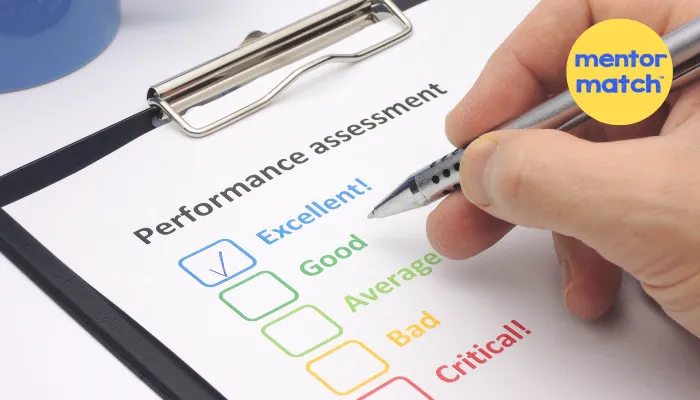
77.32% of parents see better grades in 3 months!
It’s a typical weekday evening.
You’re trying to cook dinner, answer a work email, and somehow, you still need to help your child figure out why the Earth orbits the sun.
Meanwhile, they’re staring blankly at their homework like it’s written in another language.
Sound familiar? If you’re nodding along, don’t worry—you’re not alone.
Every parent has been there, wondering how to help their child ace school without turning into a full-time tutor.
Let’s face it—school is tough, not just for kids but for parents too.
You want your child to excel, but between algebra equations, history projects, and science experiments, figuring out the secret sauce to academic success can feel like cracking the Da Vinci Code.
The good news?
You don’t need a PhD in parenting to make a big difference in your child’s performance.
It’s not just about homework drills or memorizing flashcards—there’s a lot more that goes into the academic performance of a student, and it’s easier (and more fun) than you think!
Whether they’re dealing with a homework avoider or a future straight-A student, we’ve got you covered.
We’ll break down everything parents need to know about what makes their child thrive in school—without the stress.
Ready to unlock your child’s academic superpowers?
Let’s dive in! (No PhD required, I promise!)
What’s Academic Performance, Anyway?

Before we dive into the fun stuff, let’s quickly break down what “academic performance” means.
In short, it’s how well your child is doing in school.
Most schools measure this through tests, quizzes, or class participation.
It’s about more than just grades; it’s about whether they’re mastering both the ‘how-to’ skills (think tying their shoes or solving a math problem) and the ‘what’ knowledge (like facts, concepts, and trivia).
Now that we’ve nailed the definition, let’s move on to the factors that influence the academic performance of a student—your child!
Also Read: Exploring the Meaning of Student Academic Success
What Makes One Kid Succeed While Another Struggles?
Ever wonder why some kids seem to coast through school while others struggle, even when they’re equally smart?
The answer lies in individual differences.
Intelligence is part of it (yep, IQ does play a role), but other traits, like conscientiousness (being organized and disciplined) and curiosity, matter a lot too.
Think of it this way: If your child is naturally curious, they’ll be the one asking questions in class and diving into books at home.
On the other hand, a child who’s a bit more disorganized might struggle to keep track of their homework.
Here’s where you, as a parent, can make a difference! Encourage their natural curiosity or help them get more organized—sometimes, it’s the little things that make a big difference.
Now, let’s talk about how early home learning affects school performance.
Ever noticed how kids who are read to before kindergarten seem to have a head start?
That’s no accident.
A rich learning environment at home sets the stage for better academic performance of a student later on.
The Stuff That Isn’t Taught in Class: Non-Cognitive Factors
Okay, so we all know math and reading are crucial, but there’s more to academic success than just hitting the books.
This is where non-cognitive factors come into play.
These include things like self-control, motivation, and, wait for it—emotional intelligence.
In other words, it’s all about how your child behaves and feels about learning, not just how much they know.
Take motivation, for example.
Some kids are motivated because they love learning.
Others might need a little extra push (like a reward for doing well on a test—hello, ice cream!).
And guess what?
Kids who are internally motivated, those who study because they genuinely enjoy it are those who usually perform better in the long run.
Then there’s self-control, aka the superpower that helps kids put down the video game controller and focus on homework.
If your child can resist distractions, they’re already on the path to success.
Think of it as flexing their “school muscle.”
The more they practice self-control, the stronger that muscle gets!
So what can parents do?
Try setting small, achievable goals for your child.
This helps build their confidence and keeps them motivated.
Trust me, there’s nothing more satisfying for them than crushing a goal—no matter how small it seems!
Need a little help fine-tuning those non-cognitive skills like motivation and self-control?
From staying motivated to managing distractions, MentorMatch provides the guidance your child needs to build that school muscle—and keep it strong!
Extracurriculars: More Than Just Fun and Games

Here’s a little secret: getting your child involved in extracurricular activities can actually boost their brainpower.
Whether it’s sports, music, or drama, these activities teach valuable life skills like teamwork, time management, and responsibility.
The best part?
Studies show that kids who are engaged in activities outside of school often perform better academically.
But here’s the catch—balance is key.
While it’s great for your child to be involved in activities, overloading their schedule can backfire.
So, if parents are juggling soccer practice, piano lessons, and a spelling bee prep class, they might want to rethink the lineup.
Too many activities can overwhelm your child and lead to burnout.
The goal is to enrich their lives, not overload them!
Skipping Class = Skipping Success: The Impact of Truancy
It might seem obvious, but let’s not overlook the importance of simply showing up.
Truancy, or skipping school, is a serious roadblock to your child’s success.
Not only do they miss out on essential lessons, but their absence can slow down the whole class, as teachers often have to backtrack to help the absent student catch up.
And guess what?
Truancy doesn’t just apply to students—teachers can be truant too!
When teachers are frequently absent or unmotivated, it affects the entire classroom dynamic, slowing down the learning process for everyone.
Speaking of teachers, let’s talk about how they influence the academic performance of a student.
Also Read: Online Tutoring for K-12 and Higher Education Students
The Power of Teachers: More Than Just Homework Assigners
A great teacher can be the difference between your child dreading school and actually enjoying it.
Research shows that the teacher-student ratio—basically, how many kids a teacher has in their class—can seriously impact the academic performance of a student.
The fewer students per teacher, the more individual attention your child gets. Think of it like getting a tutor without the extra cost!
But it’s not just about class size.
Teacher motivation matters too.
Well-paid, happy teachers who love their job are more likely to inspire and motivate students.
If a teacher feels valued, they’ll bring more energy and passion into the classroom, and trust me, that rubs off on the kids!
However, even the most dedicated teachers can’t always give your child the one-on-one help they might need. That’s where MentorMatch comes in!
Why settle for anything less when you can match your child with a mentor who’s ready to boost their academic game?
Parents Matter (A Lot!)
Surprise, surprise—parents' education and income level can play a big role in the academic performance of a student.
But don’t worry, it’s not all about having a PhD or a fat bank account.
It’s about being involved and showing your child that education matters.
Studies show that kids whose parents are more involved in their schooling tend to do better academically.
Interestingly, mothers’ education is particularly influential.
Simply creating a supportive learning environment (like reading together or making homework time fun) can make a huge difference.
Now that we’ve got a clear idea of what academic performance means, let’s tie everything together with some final thoughts on how you can support your child on their educational journey.
Final Thoughts:
So, what have we learned?
The academic performance of a student—your child—isn’t just about IQ or how much time they spend cramming for exams.
It’s a mix of individual traits, the home environment, school resources, and even extracurricular activities.
And parents have the power to influence all these areas.
Get involved, create a positive learning environment at home, and help your child find the right balance between school, activities, and relaxation. Remember, the goal is to foster a love of learning—not just boost grades.
Also with the right support and encouragement from MentorMatch’s one-on-one personalized tutoring, there’s no limit to what they can achieve academically—and in life!
And don’t forget: you’re your child’s biggest cheerleader.



.png)
.webp)
.webp)